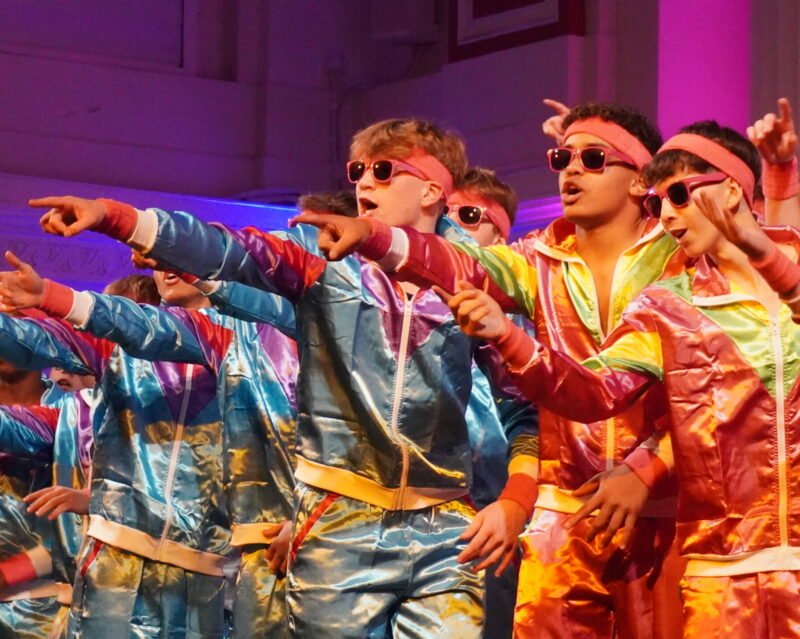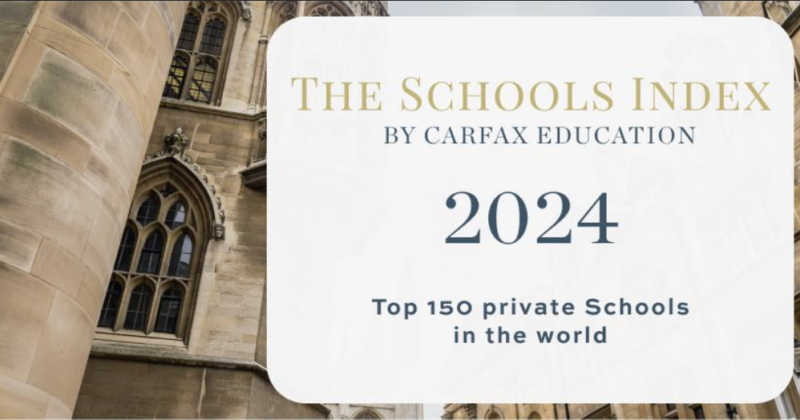This website uses cookies so that we can provide you with the best user experience possible. Cookie information is stored in your browser and performs functions such as recognising you when you return to our website and helping our team to understand which sections of the website you find most interesting and useful.
Pupils ensure Lear is not 'unactable'
Few school productions in these pressured days display the ambition, the talent and the verve to take on and then pull off a major pre-20th century tragedy; even fewer have this success with the ‘whirlpool and the hurricane’ that is King Lear, a play deemed too challenging for many a professional operation, featuring a lead role often deemed unactable.
Yet, Haileybury’s production of King Lear this term blew such cowardly thinking out of the water, revealing a dazzling depth of talent among the School’s actors, showcasing performances which cannot have been bettered in many years.
The sort of conservative thinking that would ordinarily prevent such ambitious productions taking place was further distanced through the startling casting of a female Lear and a female Gloucester, with both being played, of course, by actors at the opposite end of the age spectrum to the norm. Yet, Anella Vokes (Aby), as Lear, gave an exceptionally well-rounded performance, displaying the forcefulness of the monarch and the fragility of the mad outcast with equal success, and masterfully (mistressfully?) leading the audience to the depths of pity. Only the icy-hearted could fail to have been moved by Anella’s mature performance. Lauren Roberts (Aby), meanwhile, played Lear’s counterpart, Gloucester, with touching naivety and then conjured utter agony in the audience as her own agony became so horrifically real at the hands of Chad Stacey’s (L) brutally psychotic Cornwall, goaded on by the iciest of sisters, Katie Gard’s (Aby) powerfully spiteful Regan and Lynette Dixon’s (Aby) preening, feline Goneril.
Alongside these finely crafted visions of evil was Oliver Marr’s (E) Edmond, whose cruel smirks were barely hidden from his victims, suggestive of his desperate desire to be feted by all. His Edmond had all the momentum and glamour of youth behind him, yet allied it to a gnarled politician’s mind.
The dark characters were finely balanced, though, by compelling performances by those fighting to keep morality and sanity alive. Abigail Oghene (Aby) played Cordelia with a saintly composure, seeming beyond the realm of human frailty – until the agonising waste that is her death tore all hope asunder. As the play closed with its nihilistic destruction, we were left looking for a glimmer of light from Albany, yet Josh Alibhai (Tr) deftly played his central role at the climax by expertly suggesting Albany’s impotence in the face of the cruelty of man and fate. Even the loyal Kent could offer no succour, with Ludwig Swaniker (Th) having crafted Lear’s supporter as commendably loyal, but then utterly broken by the suffering he had witnessed, expressed unforgettably through his primal roar of pain at Lear’s demise.
Perhaps only on the shoulders of Shaun Williamson’s (BFr) Edgar could a glimmer of hope rest at the end of the play, as Shaun had shown spectacular depths of pain through his portrayal of Tom O’Bedlam and yet returned to sanity as Edgar to such success that one felt he could drag the kingdom back from the brink of chaotic self-destruction too. The only other sign of powerful, positive humanity in the play had already taken its leave, as Nicola Bray’s (Aby) Fool was long since gone. Nicola had given us a rarely seen treat in the Fool: a credible character, full of love and wisdom, but Shakespeare himself denied us that character as an outlet of hope, hence cutting short one of the most memorable of the night’s performances in amidst an exceptionally deep field. Indeed, even the smaller roles spoke volumes for the depth of talent in the School and for the immense amount of work the whole cast had put in, with Xavier Perraudin (E) (Oswald) being an audience favourite thanks to his comic blend of cluelessness and callousness, and Sophie Adams (Aby) and Ayla Spearman (M), amongst many others, bringing such sensitivity and depths to small roles.
Haileybury is lucky indeed to have such talent in the acting ranks – and to have a director of the calibre of Nigel Parkin to bring his vision to reality in the Ayckbourn theatre. The set was quite remarkable, with a bed of dead leaves covering the stage, suggestive of the cast-off beauty of transient youth, as well as the faded remains of respect and sanity. Other elements, from the gaping hole in the back curtain to the crumbling stone structure, combined to suggest the cycle of life from womb to tomb, as did the highly effective lighting and sound, produced by the excellent backstage team.
Ultimately, a production is for an audience and this production faced the challenge of bringing an unfamiliar, challenging masterpiece to life for a 21st century school audience – and bring it to life it did with complete success. Endless conversations around School in the ensuing days took place on the agonising brilliance of Shakespeare’s play, with so many enlightened by their visit to the Ayckbourn that week – and there can be no greater praise of a school production than that it was thought-provoking, enlightening and deeply moving.




